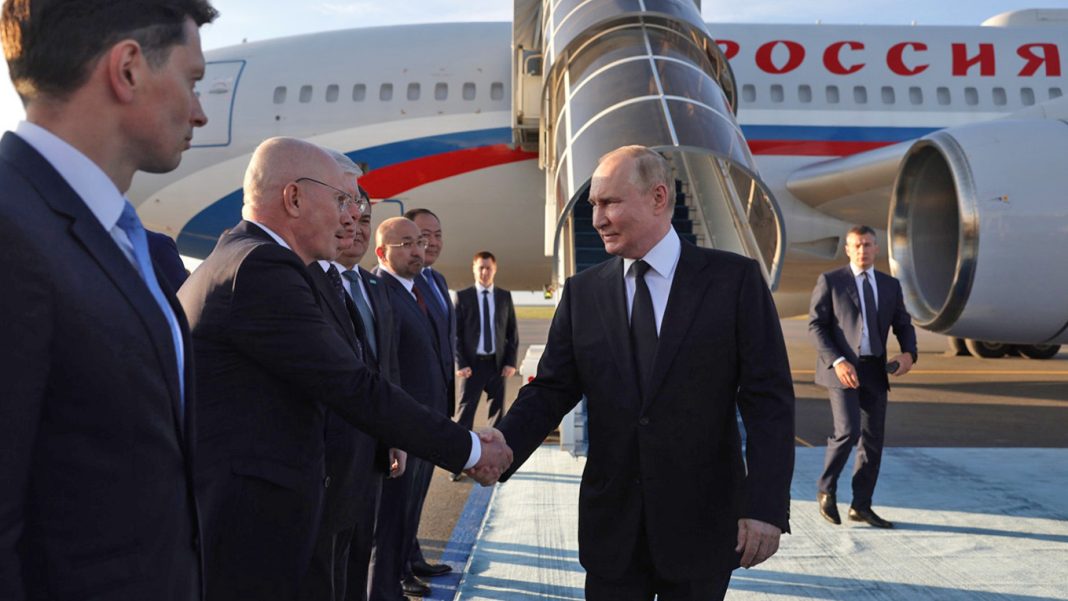Putin and Xi competed for influence at a regional summit in Kazakhstan, aiming to strengthen anti-Western alliances and expand their sway in Central Asia.
Russian President Vladimir Putin arrived in Astana for a meeting of the Shanghai Cooperation Organization (SCO), a bloc led by Beijing that spans Central Asia, India, and Iran. The SCO serves as a crucial platform for both Moscow and Beijing to advance their interests across Eurasia amidst deepened political, military, and economic ties, particularly following Russia’s Ukraine invasion in 2022.
“We consider partnership within this organization highly important,” said Kremlin aide Yury Ushakov, emphasizing the SCO and Brics as pivotal to shaping a new world order and promoting multilateralism.
Despite recent strategic partnerships, Russia and China historically vie for influence in Central Asia, where ex-Soviet republics like Kazakhstan, Kyrgyzstan, Tajikistan, Turkmenistan, and Uzbekistan maintain ties to Russia but increasingly engage with China due to its economic clout and infrastructure projects like the Belt and Road Initiative.
Central Asia’s significance also lies in its natural resources and its role in overland transport between China and Europe. The region’s geopolitical dynamics have shifted with Russia’s actions in Ukraine potentially opening opportunities for other global players.
At the SCO summit, Putin plans bilateral meetings, possibly including discussions with Turkish President Recep Tayyip Erdogan, who seeks a role in mediating the Ukraine conflict. Belarus, a close Russian ally, is anticipated to join the SCO, while UN Secretary-General Antonio Guterres is set to address the summit.




